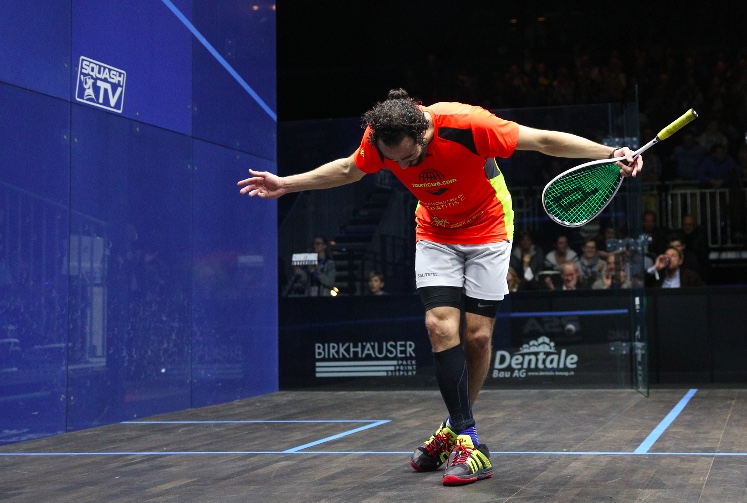Will PSA squash directives damage or improve the sport?
Written by I Dig Sports
Squash is a-changin. In these modern times of becoming an Olympic sport, the season-opening Egyptian Open has seen updated directives and its important to note these arent rule changes thrust upon the sports elite. Its fair to say the inaugural Diamond event on the revamped PSA Tour has been a less than sparkling affair.
Such have been the shenanigans despite the players having been sent these new directives has squash seen the like of it before?
Earlier this year, Squash Mad revealed that strict American TV bosses had told squash chiefs to cut out player interactions with referees if the sport aspired to be broadcast in the US market.
Squash has listened while the keyboard warriors have taken umbrage at what has occurred in Cairo this week.
Directives on foot faults, speed of play (to avoid unnecessary time wasting) and player dissent have all been updated for this season.
Read More: PSA player suspensions, fines and warnings revealed
Read More: World No 1 Ali Farag backs referee directives
And the full extent of how administrators want the game to be perceived has been laid out for all to see.
On the face of it, time wasting is set to leave players with little option but to play on without any undue action before serving for the next point, even after a two-minute long rally. It will be down to the referee to offer interpretations if players fall foul of the raft of potential delay tactics.
In Cairo, one clip which surfaced did seem especially harsh, given that the routine is seen at amateur level at clubs globally:
Racquet abuse?
SERIOUSLY. pic.twitter.com/mc3s4z7Yt6Framboise Gommendy (@FramGommendy) September 5, 2024
Another clip produced a similar outpouring of disbelief with what seemed a minor player irritation turn into racket abuse:
Then came the biggest controversy when Fares Dessouky was handed a conduct game against following the histrionics against Tarek Momen.
This occurred on the traditional plaster courts at the Egyptian Open where the heat of the moment can produce unsavoury scenes less seen on the main glass courts.
The referees came in for a raft of abuse on social media. Yet, they have only been doing their jobs, with the directives so early in its infancy and the players having been emailed them.
Thus, we should highlight what Lee Drew, head of World Squash Officiating (WSO), said in the aftermath of the Dessouky controversy.
What I would emphasise is that theyre not rule changes, he said. These things are in the rules and theyve always been in the rules and its about bringing it to the attention to address situations that are occurring as part of the game of squash and that the rules say shouldnt be occurring.
Theres no question that the sport is evolving ahead of LA 2028 and its Olympic debut. As much as we need the players to showcase their character on court, there also has to be a recognition for change.
I fondly recall reporting on the Greg Gaultier v Mohamed ElShorbagy match from the ToC in 2017 when the Frenchman produced a showmanship performance of his own, hobbling about on one leg to prevail towards the final. That report generated thousands of views online.
Squash is simply like no other when viewing the summer Olympic programme sports.
No other sport has rule interpretations like it when it comes to lets and strokes given the close contact. Sure, there are controversies at every Olympiad. But if we can cast our minds forward to LA and imagine what may occur in the 32-draws, we could be looking at an array of negative reports, rather than the spectacle, given that the media will be watching the sport for the first time.
The hardline approach from squashs administrators is unlikely to backtrack. These measures will take time to bed in.
But it will certainly be interesting to see how the whole match and tournament spectacle pans out.
How the PSA players will refrain from emotion when it goes against them. Whether the rivalry will just get more intense a la Barrington-Hunt, who delivered without the modern day controversies we have seen over the last few seasons.
Or whether players (mainly on the mens side) and officials can work together to keep this sport as relevant and exciting as it has been since the sport first went professional 50 years ago.















 Phone: (800) 737. 6040
Phone: (800) 737. 6040 Fax: (800) 825 5558
Fax: (800) 825 5558 Website:
Website:  Email:
Email: 






